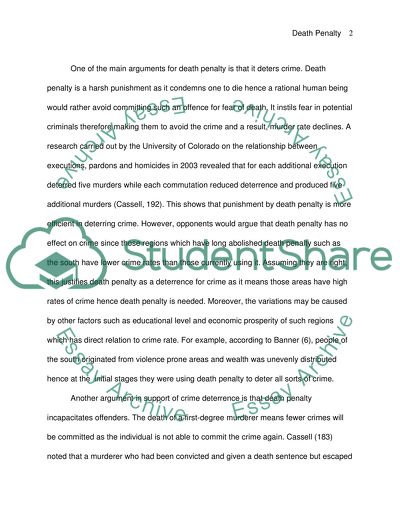Cite this document
(“The Death Penalty in the United States Essay Example | Topics and Well Written Essays - 2500 words”, n.d.)
Retrieved from https://studentshare.org/law/1439405-the-death-penalty-in-the-united-states
Retrieved from https://studentshare.org/law/1439405-the-death-penalty-in-the-united-states
(The Death Penalty in the United States Essay Example | Topics and Well Written Essays - 2500 Words)
https://studentshare.org/law/1439405-the-death-penalty-in-the-united-states.
https://studentshare.org/law/1439405-the-death-penalty-in-the-united-states.
“The Death Penalty in the United States Essay Example | Topics and Well Written Essays - 2500 Words”, n.d. https://studentshare.org/law/1439405-the-death-penalty-in-the-united-states.


